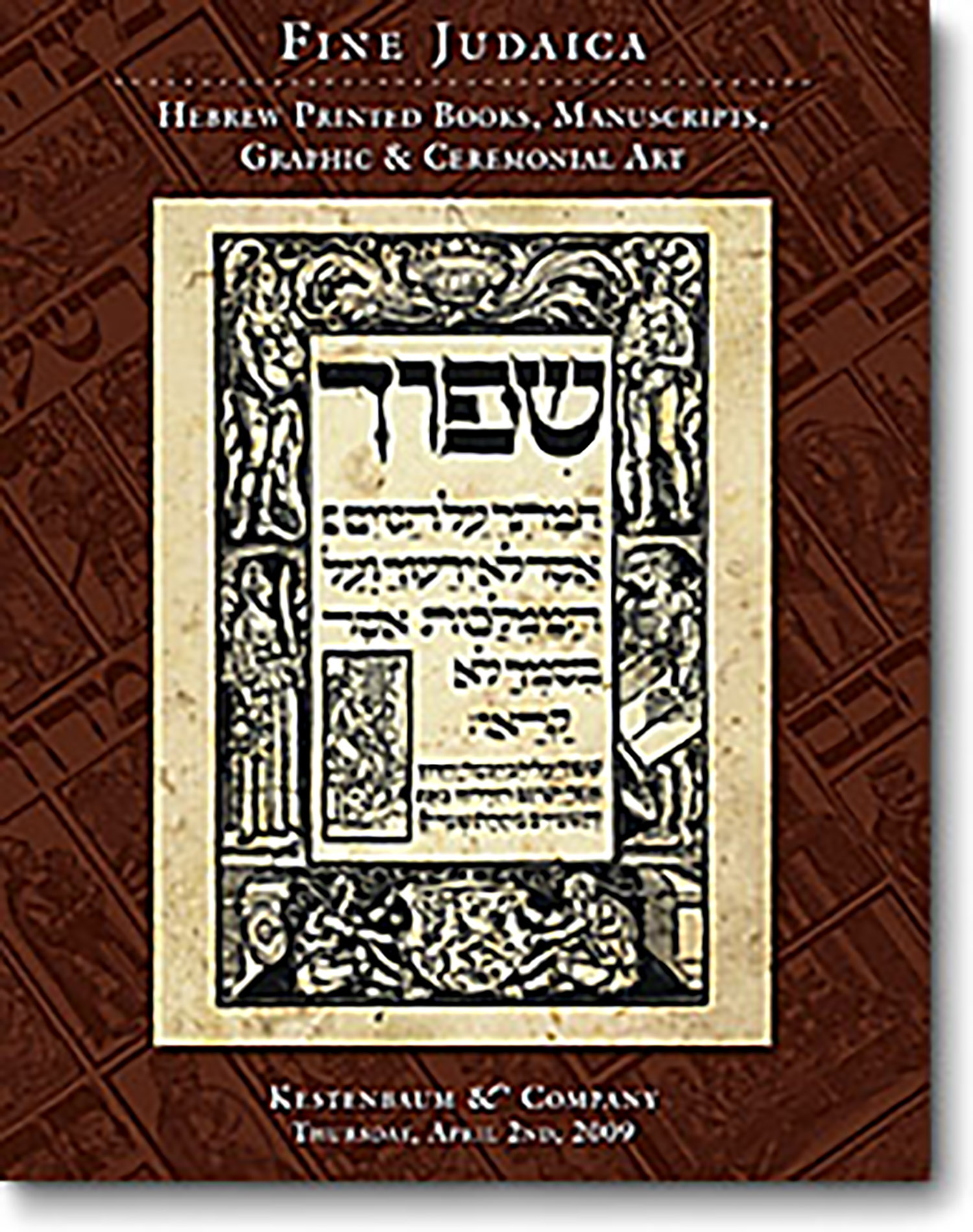(AMSTERDAM)

AUCTION 43 |
Thursday, April 02nd,
2009 at 1:00
Fine Judaica: Hebrew Printed Books, Manuscripts, Graphic & Ceremonial Art
Lot 44
(AMSTERDAM)
Est: $3,000 - $4,000
After the defeat of Napoleon at Waterloo, French rule of the Netherlands drew to a close. No sooner did King William I (formerly Prince of Orange-Nassau) ascend to the throne of the United Netherlands, he set about organizing the Jewish community. On June 12, 1814 a regulation was issued providing for twelve Hoofd-Synagogen (main synagogues) to be distributed as follows: In Amsterdam, one Sephardic ("Portugeesche" or Portuguese) and one Aschkenazic ("Hoog-duitsche" or German); the same for Den Haag; and one each for Rotterdam, Amersfoort, Middelburg, den Bosch, Nijmegen, Zwolle, Leeuwarden and Groningen (Article 1). This regulation determined the powers of the chief rabbis, as well as those of the parnassim and manhigim (lay leaders); and addressed the mode of elections, marriages and relief to the poor. Neither did William I neglect the area of education: Teachers without diplomas and foreign rabbis were prevented from taking office (Art. 29), and medals were promised for the best school texts and sermons in Dutch (in an effort to discontinue the use of Yiddish in instruction). See Verordeningen, Vol. I, No. III, pp. 1-58.
When in 1840 William I abdicated, he was succeeded by his son William II. At the latter's behest, a resolution was passed on May 30, 1845 giving the widows of chief rabbis (Opperrabbijnen) the same benefits as the widows of Protestant clergy. See Verordeningen, Vol. IV, No. 10.
